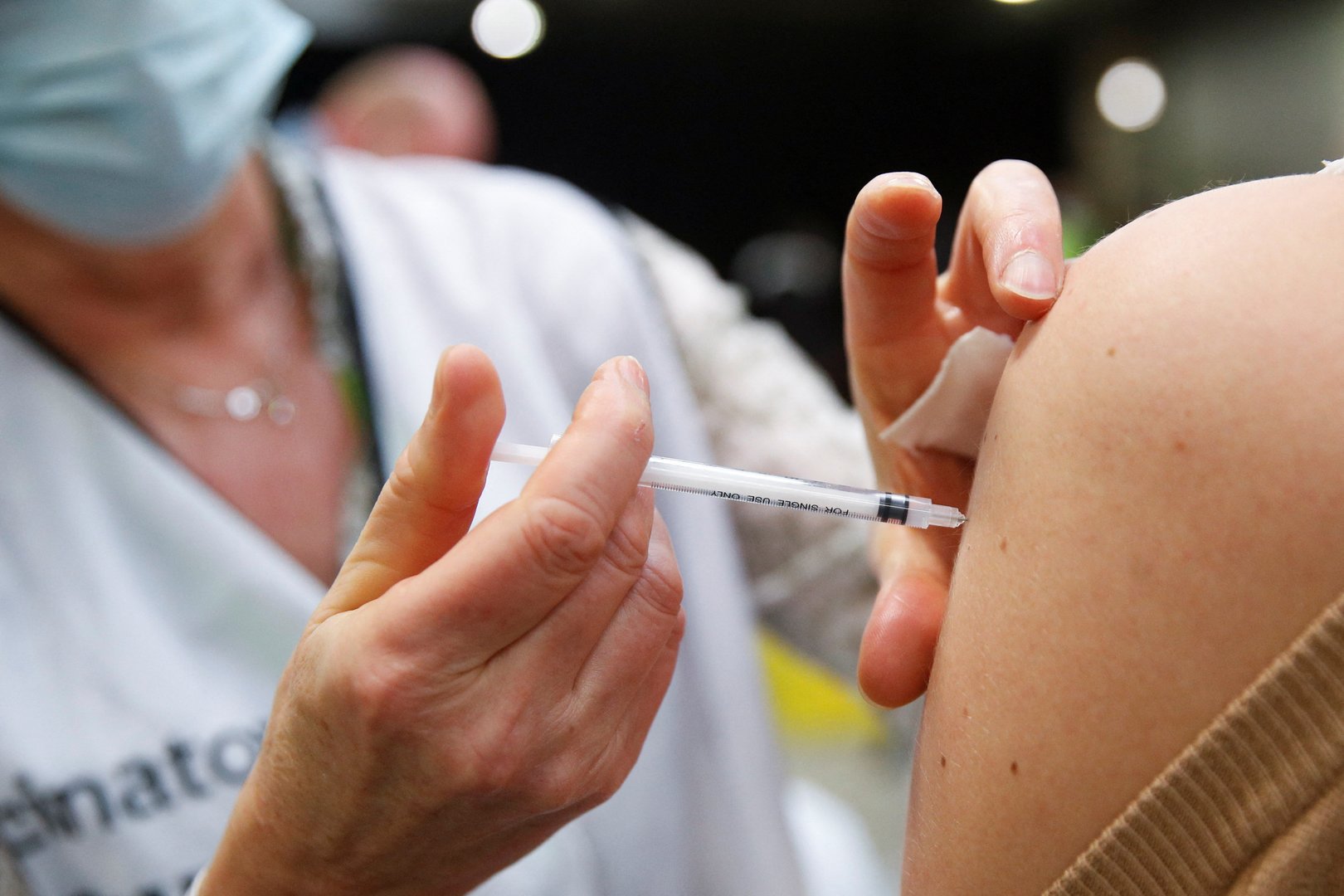Adding an experimental mRNA-based vaccine from Moderna Inc MRNA.O and Merck & Co MRK.N (known as MSD in Europe) reduced the risk that the most deadly skin cancer would spread by 65% over treatment with an immunotherapy alone in a midstage trial, the companies reported on Monday.
The results, presented at the American Society of Clinical Oncology meeting in Chicago, follow earlier promising data from the trial showing the customized mRNA vaccine given in combination with Merck’s Keytruda cut the risk of death or recurrence of melanoma by 44% compared with Keytruda alone.
The findings add to a growing body of evidence suggesting that mRNA technology, which rose to prominence during the COVID-19 pandemic, can be used to assemble personalized vaccines that train the immune system to attack the specific type of cancer cells in a patient’s tumors.
Scientists have been chasing the dream of vaccines to treat cancer for decades with few successes. Experts say mRNA vaccines, which can be produced in as little as eight weeks, paired with drugs that rev up the immune system may lead to a new generation of cancer therapies.
The hope is for “a completely new treatment paradigm in cancer that will be better tolerated and unique to individual patients’ tumors,” said Dr. Jane Healy, an executive overseeing in early cancer treatment development at Merck.
The Merck/Moderna collaboration is one of several combining powerful drugs that unleash the immune system to target cancers with mRNA vaccine technology. Pfizer’s PFE.N COVID vaccine partner BioNTech SE 22UAy.DE and Gritstone Bio Inc GRTS.O are taking similar approaches using mRNA technology.
The vaccines all target neoantigens, new mutations that are only present on tumors. Aiming at these unique proteins allows the immune system to kill cancer cells while leaving healthy tissue unscathed.
The trick is determining which of many mutations is driving the cancer.
To accomplish this, tumors are removed and their genetic makeup is mapped using next-generation DNA sequencing. Companies use artificial intelligence to predict which mutations will be the most effective targets. These are used to build an individualized vaccine targeting only mutations in the patient’s tumor.
During this process, patients typically receive an immunotherapy such as Keytruda or Roche’s ROG.S Tecentriq, which block a mechanism cancer uses to hide from the immune system.
‘A STARTING POINT’
Long before COVID, companies had been eyeing messenger RNA (mRNA) technology, which carries instructions for cells to make specific proteins, as a vehicle for delivering a cancer vaccine.
Merck and Moderna have been collaborating since 2016. Researchers at Memorial Sloan Kettering Cancer Center (MSK) in New York began working with Germany’s BioNTech in 2017.
At that time, there was already proof that immunotherapy could work in so-called “hot” tumors, or highly mutated cancers, such as melanoma. There was little hope it would work in “cold” cancers with few mutations, such as pancreatic cancer, said MSK’s Dr. Vinod Balachandran.
With standard treatment, 90% of pancreatic cancer patients die within five years of diagnosis.
Balachandran’s team studied the rare long-term survivors and found an immune system component called T cells in these individuals were able to recognize mutations derived from the cancer, raising the possibility of a targeted vaccine.
In a small ongoing trial testing a made-to-order BioNTech vaccine plus Roche’s Tecentriq, half of the 16 pancreatic cancer patients mounted an immune response, and none showed signs of relapse after 18 months, according to data published last month in Nature.
Gritstone Bio is taking a different tack, combining two types of customized vaccines in hopes of treating patients with metastatic colon cancer, another cancer that has been largely unresponsive to immunotherapy.
The approach first primes the immune system with an older technology called a chimpanzee adenovirus vaccine that targets patients’ tumors. That is followed by a personalized self-amplifying mRNA vaccine, which includes an enzyme that makes extra copies of the antigens, reducing the required dose.
Gritstone is expecting data from a later-stage trial testing its dual vaccine therapy in the first quarter of 2024.
“Based on everything we’ve shown and we’ve published, we’re really excited,” said Gritstone CEO Andrew Allen.
Merck and Moderna are planning a larger Phase 3 trial in melanoma and are also testing its combination in lung cancer.
“We see this as a starting point,” Healy said.







Click here to change your cookie preferences